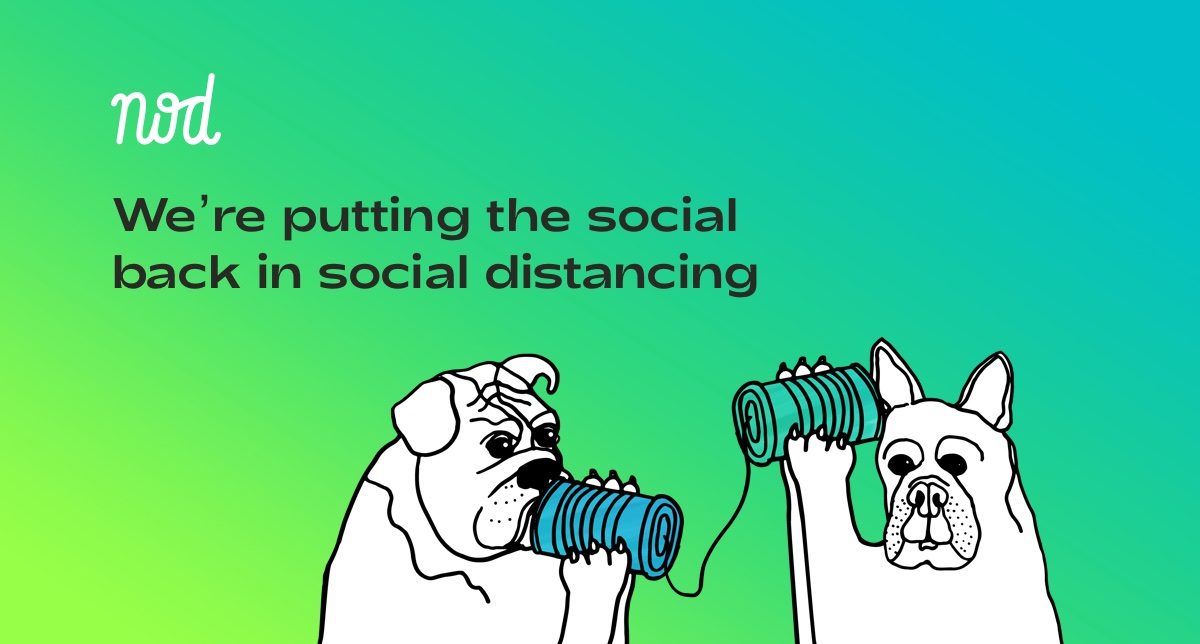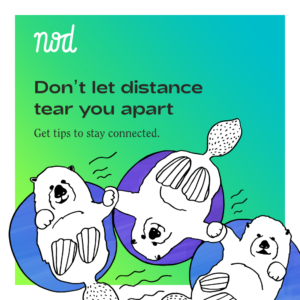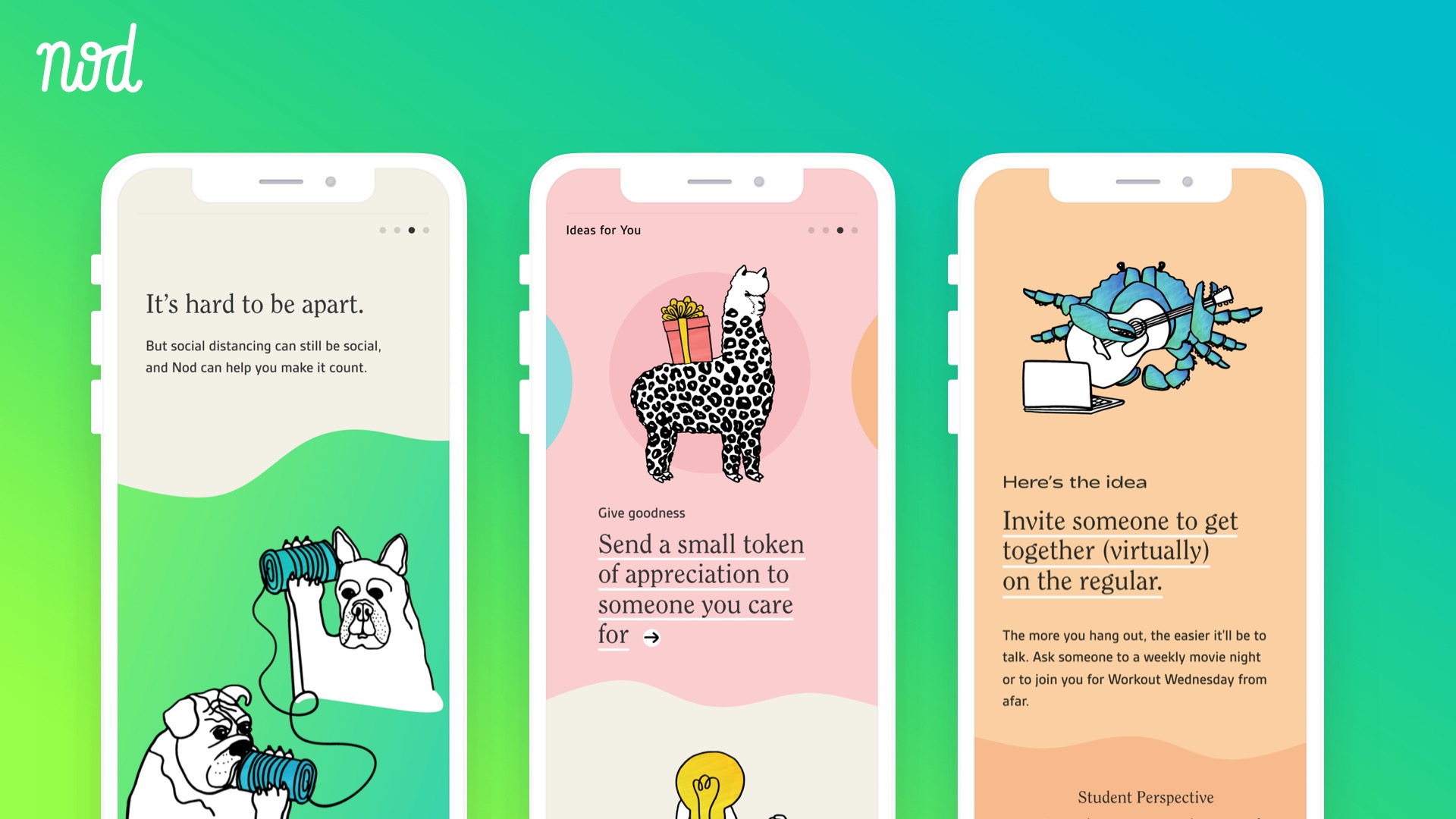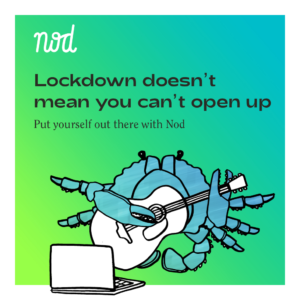
A new free app developed by a Colorado State University alumnus has been added to the online student success tool YOU@CSU to help students stay socially connected during this period of remote learning due to the coronavirus pandemic.
The app, called “Nod,” resulted from a collaboration between San Francisco-based foundation Hopelab and Grit Digital Health. Grit, which created the YOU@CSU wellness app, was founded by Joe Conrad (B.A. Journalism, ’87), who is also the founder and CEO of Cactus, a Denver-based advertising agency.
 Nod uses evidence-based strategies designed to improve student resilience, providing social connection tips and tools that help students maintain meaningful connections while staying safe and adhering to public health directives.
Nod uses evidence-based strategies designed to improve student resilience, providing social connection tips and tools that help students maintain meaningful connections while staying safe and adhering to public health directives.
Even prior to the COVID-19 pandemic, Nod had been in development to address survey findings that loneliness was on the rise among college students and contributing to mental health issues. CSU was planning a strategic rollout of the app in the coming semesters, but as with many things, COVID-19 changed the plan. When the pandemic hit, the app’s creators quickly pivoted to provide content that was targeted to students’ new reality of distance learning, isolation from peers, and concerns about family, health and financial security.
“They worked really quickly on that adaptation, which was amazing,” said Janelle Patrias of the CSU Health Network, manager of mental health initiatives and project lead for YOU@CSU. “Nod is now positioned to help even more students.”
Making connections
So instead of encouraging students to say hello to a stranger in a coffee shop, as the original version did, it might challenge a student to express gratitude to someone who suggested a good TV series, reach out to someone who might be struggling, or set up a weekly virtual lunch with a friend.
“The plan was to launch Nod on April 1, but then the world changed in mid-March,” Conrad said. “Isolation and loneliness were what we were targeting originally, and now people were more isolated than ever. We knew we had a tool that could address this crisis if we changed the content, and then we decided to give it away for free during this time.”
Patrias said YOU@CSU quickly shifted to COVID-related content in March as well, adding more than 40 new resources related to things like effective handwashing, tips on learning remotely, and social distancing. Other topics include ways to say connected, adapting to change in an ever-changing world, how to confront coronavirus-related stigma and how to support mental health during these difficult times.

Widespread use
The “YOU@College” online student success tool, which was born as YOU@CSU in 2016, is now being used at 110 campuses around the country. Patrias said traffic on YOU@CSU has been above average this spring, especially since the move to remote learning. Nod is embedded in YOU@CSU, or can be downloaded separately.
Patrias emphasized that Nod was created only after extensive research, surveys and focus groups at CSU and other universities. It was piloted at the University of Oregon last fall, and Conrad said the results from that pilot will be presented at the annual conference of the Association for Psychological Science later this spring.
 Conrad said that once normal circumstances return and students are back on campus, the original content on Nod will be restored to help students build and maintain social connections.
Conrad said that once normal circumstances return and students are back on campus, the original content on Nod will be restored to help students build and maintain social connections.
Loneliness on the rise
According to recent surveys, 79% of GenZ (between the ages of 18 and 22) are lonely. These survey data, compared with data from previous years, show dramatic increases in college students reporting moderate and severe depression, attempting suicide, and leaving college due to mental health issues. Social distancing during the COVID-19 pandemic has triggered an urgent need to address the compounded and acute social isolation and disconnection felt by young people.
“Social connection is a powerful driver of psychological resilience and mental wellbeing,” said Danielle Ramo, senior director of research at Hopelab. “Our early evaluation with students shows that Nod can buffer the students who are most vulnerable against negative mental health outcomes in their first year of college.”
Conrad called CSU “a supportive and inspiring place” that set him on a path of service to others, in large part due to his volunteer work as a Special Olympics coach during his junior year.
“That’s when I discovered that when you give your time and energy to someone else, it actually has more of positive impact on you,” he said. “Plus, I met my wife on campus, and all three of our children have gone here, so for me, it’s a love story with CSU.”
Nod can be downloaded for free in the Apple and Google Play stores. Students are encouraged to share their experience with Nod by tagging relevant social media posts with #YouAreNodAlone.